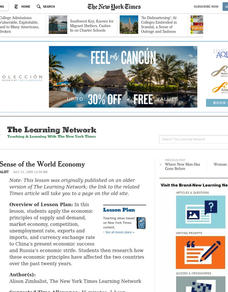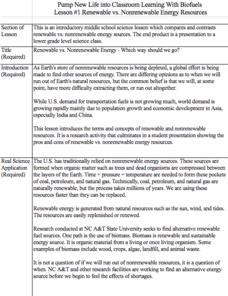BW Walch
Wondering About the New Seven (Man-Made) Wonders of the World
Who determines the Seven Wonders of the World, and what criteria is used to evaluate these locations? Discover the efforts to promote cultural diversity and preserve man-made monuments during the world's first-ever global vote in 2007 to...
Women in World History Curriculum
Women and Confucianism
Young historians consider the far-reaching effects of traditional teachings on the debates about the current attitudes toward women in society. The discussion begins with a list of New-Confucian sayings and expands to a global perspective.
National Endowment for the Humanities
Learning about Early Modern Era Empires
You are a diplomat during the Age of Empire: prepare a briefing about your country. Young scholars take on the challenge using a role-play exercise to examine various empires during the rise of global interconnectedness. Materials...
National Endowment for the Humanities
Planning for Treaty Negotiations
The party is over. Now it's time to get to work! Learners acting as agents for a country during the modern Age of Empires develop proposals to negotiate trade deals between the rising global powers. Using research from previous lessons,...
Wilderness Classroom
Ocean Life
Our oceans are composed of many complex relationships. Young oceanographers explore relationships between organisms, understand the world ocean's currents, and discover the effects of water pollution and how it behaves. There are three...
Curated OER
Making Sense of the World Economy
Students apply the economic principles of supply and demand, market economy, competition, unemployment rate, exports and imports and currency exchange rate to China's present economic success and Russia's economic strife.
Curated OER
Cultural Exchange (Salem)
Students view the photo of the The Tea Trade Painting and discuss what they see. They will then discuss what went into the beginning of a major sea voyage. Next they explore routes traveled by the New England traders. They study sailing...
CFR Washington
Urbanization and Wildlife
Urbanization and how it affects wildlife is the focus of a presentation that uses statistics to make a case for concern and change.
National Wildlife Federation
Master P in the House: An All School Energy and Climate Change Plan
A person in the US uses 20 times more energy than a person in India—that's a drastic difference! The final lesson in the 12-part series goes back to the initial energy audits, analyzes which room showed the most conservation of energy,...
Kenan Fellows
Renewable vs. Nonrenewable Energy Resources
Is one type of energy inherently good or bad? Young scientists explore energy resources in a week-long unit. After extensive research, groups create powerful position statements and presentations supporting their energy resource of choice.
Curated OER
An International Dinner Table
Students investigate the origins of several crops eaten in the United States today. The facto0rs that influence consumer choices and the influences on the American population as to eating preferences are discussed in this lesson.
Curated OER
Martha Who?
Students explore how the number and types of organisms an ecosystem can support depends on the resources available and on abiotic factors, such as quantities of light and water, a range of temperatures, soil composition. They are...













